 Paul Greenberg - 1969 Pulitzer Prize for Editorial Writing
Paul Greenberg - 1969 Pulitzer Prize for Editorial WritingThe world in which we live
by Paul Greenberg
http://www.JewishWorldReview.com
by Paul Greenberg
http://www.JewishWorldReview.com
This is the nature of the world in which we live. The phrase has been echoing in my mind since news came of Benazir Bhutto's assassination — news that shocked but did not surprise. It wasn't just that the news might have been expected, it was expected. All understood the danger. It was often cited. It just wasn't dealt with. The world just hoped for the best, and did not prepare for the worst. All acted as if nothing could be done, and sure enough nothing was.
This is the nature of the world in which we live: A country like Pakistan, which was once of little strategic consequence in the Great Game of Nations, has become a nuclear power — an increasingly unstable nuclear power. All recognize the gathering danger. It is regularly cited. But all act as if nothing can be done except hope for the best, and the worst awaits. As the fate of Benazir Bhutto so poignantly demonstrates.
This is the nature of the nuclearized world in which we live: It's not so much the number of countries who've managed to acquire their own Bomb that worries, but which ones. There are those leaders for whom a nuclear weapon is a deterrent, and others for whom it is something more, dangerously more.
Who's really worried about the British or French having the Bomb? Or the Chinese? Or even the Israelis? But a nuke in the hands of Iran's Mahmoud Ahmadinejad, or one that falls into the hands of a terrorist gang like al-Qaida as Pakistan falls apart … that's worrisome.
For once fanatics get their hands on a nuclear weapon, they'll use it, else they wouldn't be fanatics. To some a nuclear Armageddon isn't a calamity to be avoided but a consummation devoutly to be wished — and brought about. That's the nature of the ideologized world in which we live in.
Just worrying about such a danger won't help. It won't do to just wring our hands. Or deliver solemn speeches. That's not a solution; it may be the biggest part of the problem. For that, too, is the nature of the world in which we live: Procrastination always beckons, action is so much easier to delegate than to take — which means no one may ever take it. And one day we wake up to see flaming skyscrapers. Or a political figure who was a key to her country's hopes of stability struck down, and not just Pakistan but the world shakes.
There may have been only one leader who could somehow have made Pakistan a democracy. And now she's gone. Her party, perhaps the one truly national civil institution in her country, is in shambles and may never recover. No Bhuttos, no real opposition party. (In Pakistan, opposition politics is largely a family affair.) Now her country — a nuclear power, lest we forget — teeters on the edge of becoming another failed state. With consequences far beyond Pakistan. And we Americans, like the rest of the world, will have to deal with it, holding the hand Death now has dealt.
Now and then, like every morning, an editor glances at a news wire full of violence, danger, chaos and crisis, and thinks: This is the nature of the world we live in, and it is futile to wish the cards we'd been dealt were different. Instead, those whose lot it is to conduct this country's foreign policy will have to choose the lesser of so many evils. Whether it is making an alliance with a Stalin — the United States has done that before — or propping up a minor dictator who holds a major weapon, this is the world we live in. We must accept it and at the same time strive to make it a better, safer one. Quite a trick. If economics is the dismal science, it's positively cheerful compared to statecraft.
Even a single assassination can lead to a worldwide conflagration. It's happened before. The name Gavril Princip may turn up now only on Jeopardy or in other games of trivial pursuit, but his assassination of an Austrian archduke in the summer of 1914 led to results anything but trivial. That's the nature of the world in which we still live.
It's a world in which a military dictator like Pakistan's Pervez Musharraf, who used to cozy up to al-Qaida and the Taliban for his own reasons, decides to change course when the same terrorists attack his American patron. Like politics, survival makes strange bedfellows. Now the Pakistani strongman, who may not be so strong, is an ally — an ally of convenience. But whether his notorious intelligence service has gotten the word is another question. That, too, is the nature of the world in which we live. It's divided not just into governments but within governments.
If there is a single qualification for leadership in such a world, if there is a single qualification for president of the United States, it's the willingness to recognize, and the determination to deal with, the nature of the world not as we might wish it but in which we must live.
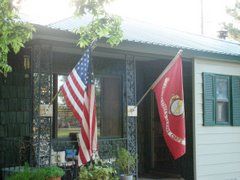
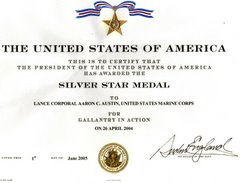
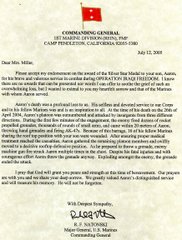
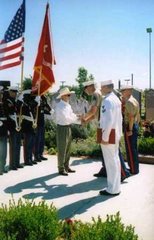


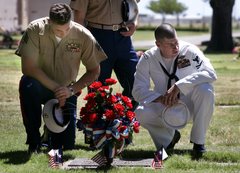

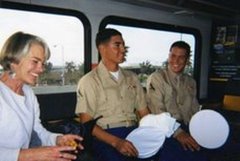

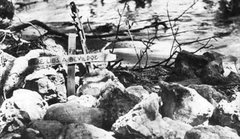




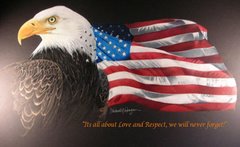

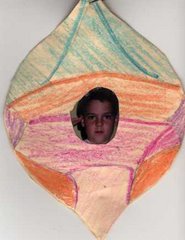

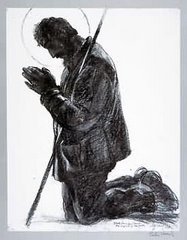
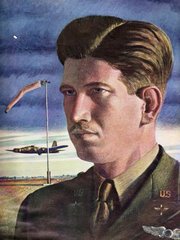
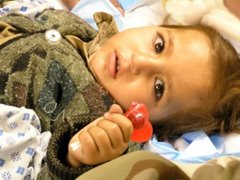
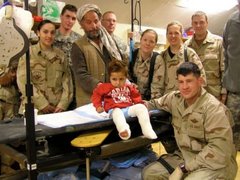


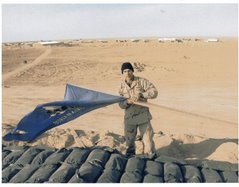


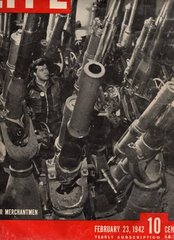


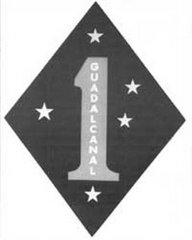







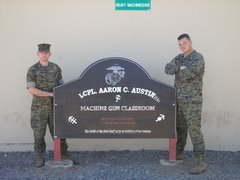

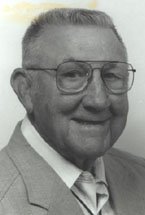

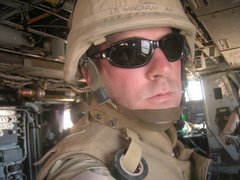
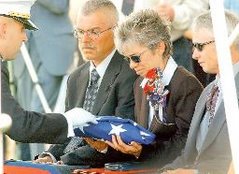


1 comment:
It's true, we know what we know but rather than truly examine our own possible mortality out of it or lose someone who is so very personally close to us due to terrorism, it is so human nature of us to just push it away.
God help and keep us through this time. Lord. It's scary when I look left.
Post a Comment